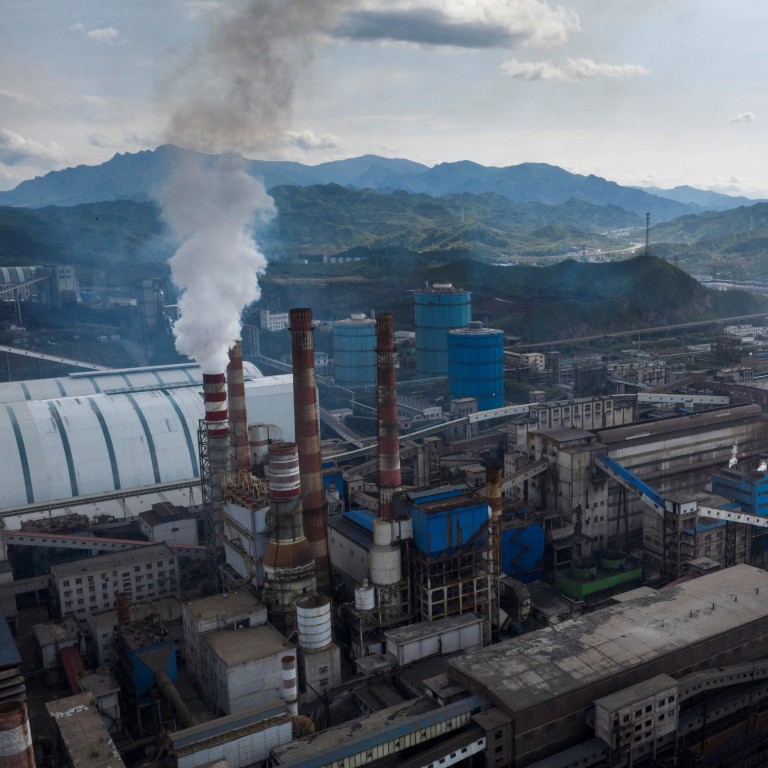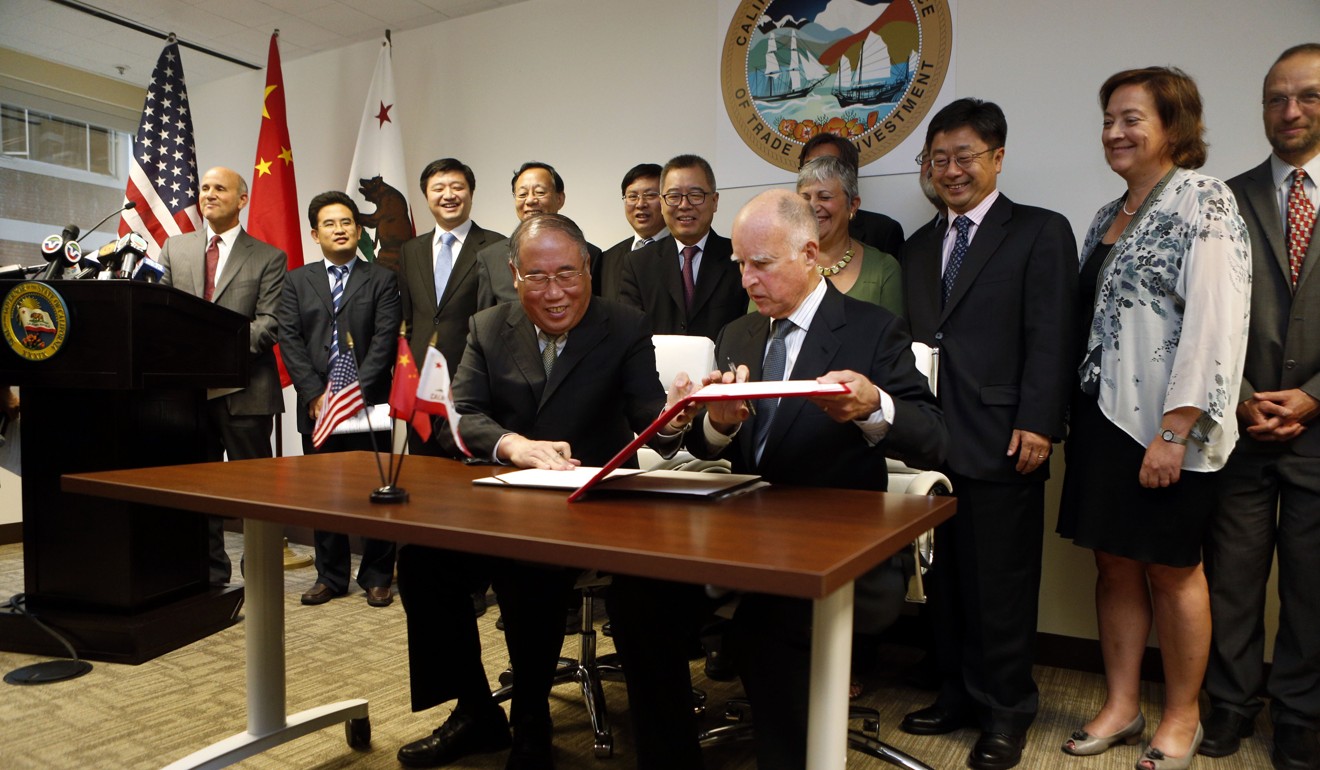
China and California find common ground in launching joint climate research institute
- US state shares some of China’s aims on emissions and clean energy
- Partnership comes at a time when President Donald Trump has been hostile to efforts to halt climate change, as well as tough on China
Brown and Xie Zhenhua, China’s top climate official, announced a new university partnership focused on climate research and policy on Monday as part of the United Nations Climate Action Summit in New York.
California, meanwhile, has adopted some of the US’ most aggressive climate goals, including an effort to use 100 per cent clean energy for electricity by 2045.

“Our goal is to keep an open door of constructive conversation at the very moment when doors are closing,” Brown, a Democrat who left office in 2018, told Associated Press in a recent interview.
Xie will be in New York for the announcement while Brown planned to participate in discussions remotely from California.
Under Brown and now Governor Gavin Newsom, a fellow Democrat, California has sued the Trump administration repeatedly over its rollback of environmental and clean air regulations. Brown began developing partnerships with China on climate during his governorship, with trips to China in 2013 and 2017.
The California-China Climate Institute will be housed at the University of California, Berkeley and will work in partnership with Tsinghua University in Beijing.
While China is prioritising fighting global warming at home, it’s also investing in dirtier energy methods such as coal in other countries as it looks to expand its global influence through its transcontinental infrastructure strategy the Belt and Road Initiative.
Still, Brown said California shouldn’t shy away from opportunities to work with China, saying a research partnership would be beneficial to both. China, for example, could teach California more about its research on battery storage, Brown said.
“One thing I think is important and still available for further development is our climate partnership,” Brown said. “That’s something Trump can’t do because he has sworn climate denial and therefore he is AWOL on one of the most important challenges facing world leaders.”
Brown noted both California and China were focused on tightening emissions of pollutants from cars and trucks. The Trump administration last week revoked California’s decades-old ability to set its own standards, but California is punching back.
“They know it’s the future and they also know the biggest market in the world will be following similar and increasingly more difficult emissions standards,” Brown said, speaking of China. “For Trump to attempt to create an island of gas-guzzling inefficiency in a sea of increasingly efficient zero-emission cars is insanity.”
Alice Hill, a senior fellow for climate change policy at the Council on Foreign Relations, said China had led in finding new ways to deal with the challenges from climate change-related floods. She called China an “important partner” for the United States on climate change even at a time of concerns about intellectual property theft by China.
China and California rise above US trade war for climate action
“You have to walk into this with open eyes but that does not mean you may not have a relationship,” Hill said.
The institute will invest in research on zero-emission vehicles and low-carbon transport, carbon pricing, climate adaptation, sustainable land use and agriculture, carbon capture and storage and long-term climate policy enforcement.
Through the partnership, California and China will share best practices on how to scale innovative climate solutions. It will also train researchers and scientists from both places and host a series of “subnational climate dialogues” with business, government and climate leaders in the United States and China.
The two nations held a similar discussion at the Global Climate Action Summit that Brown hosted last year in San Francisco.
China’s national and provincial governments as well as California’s public utilities commission, air resources board and other key climate decision-makers will work with the institute.
Asked if it was problematic for a state to team up with a foreign country, Brown said: “We’re not negotiating any treaties, we’re not making foreign policy, we’re working on climate policy, global climate policy, and as free people we are able to do that.”
Former vice-president Al Gore and Washington Governor Jay Inslee, who have been vocal proponents of tackling climate change, are expected at the announcement. Inslee, who recently ended his bid for the Democratic nomination for president, teamed up with Brown on some climate efforts while Brown was governor.

